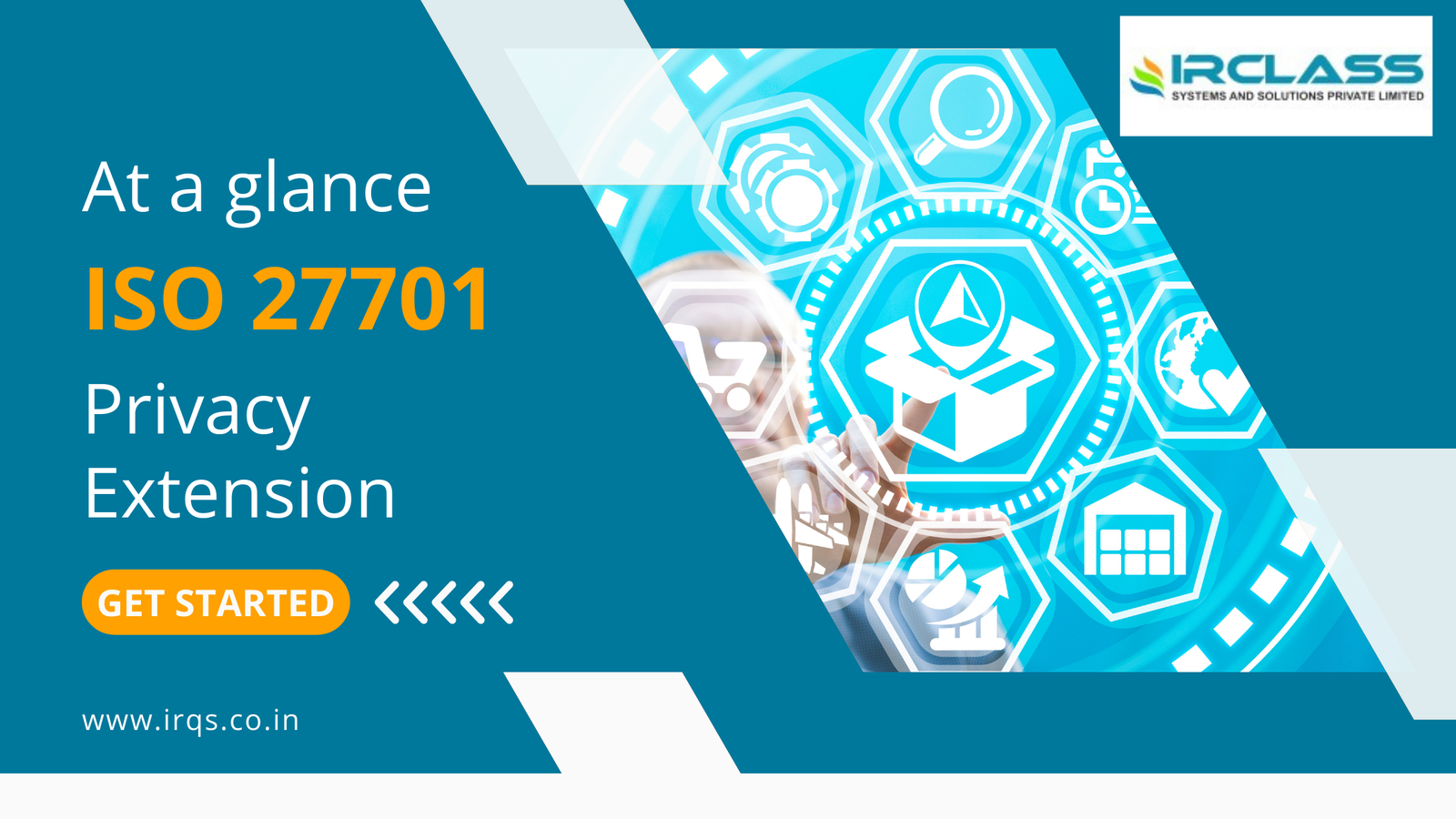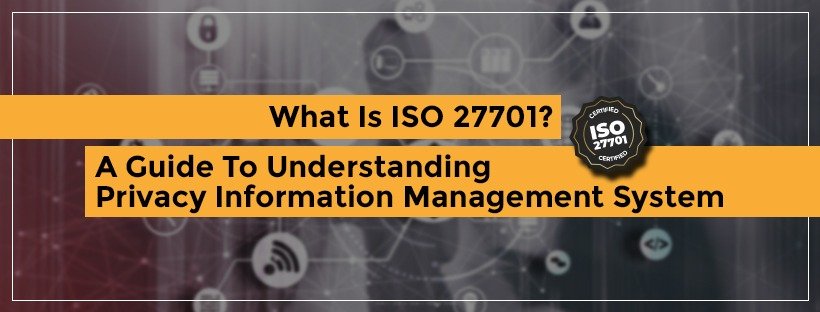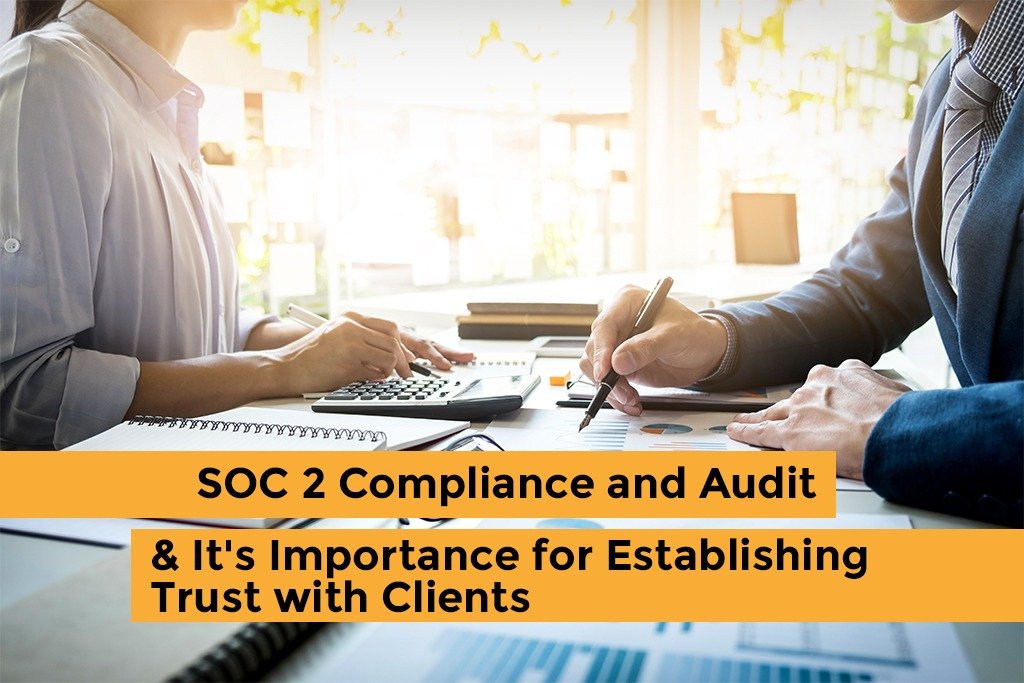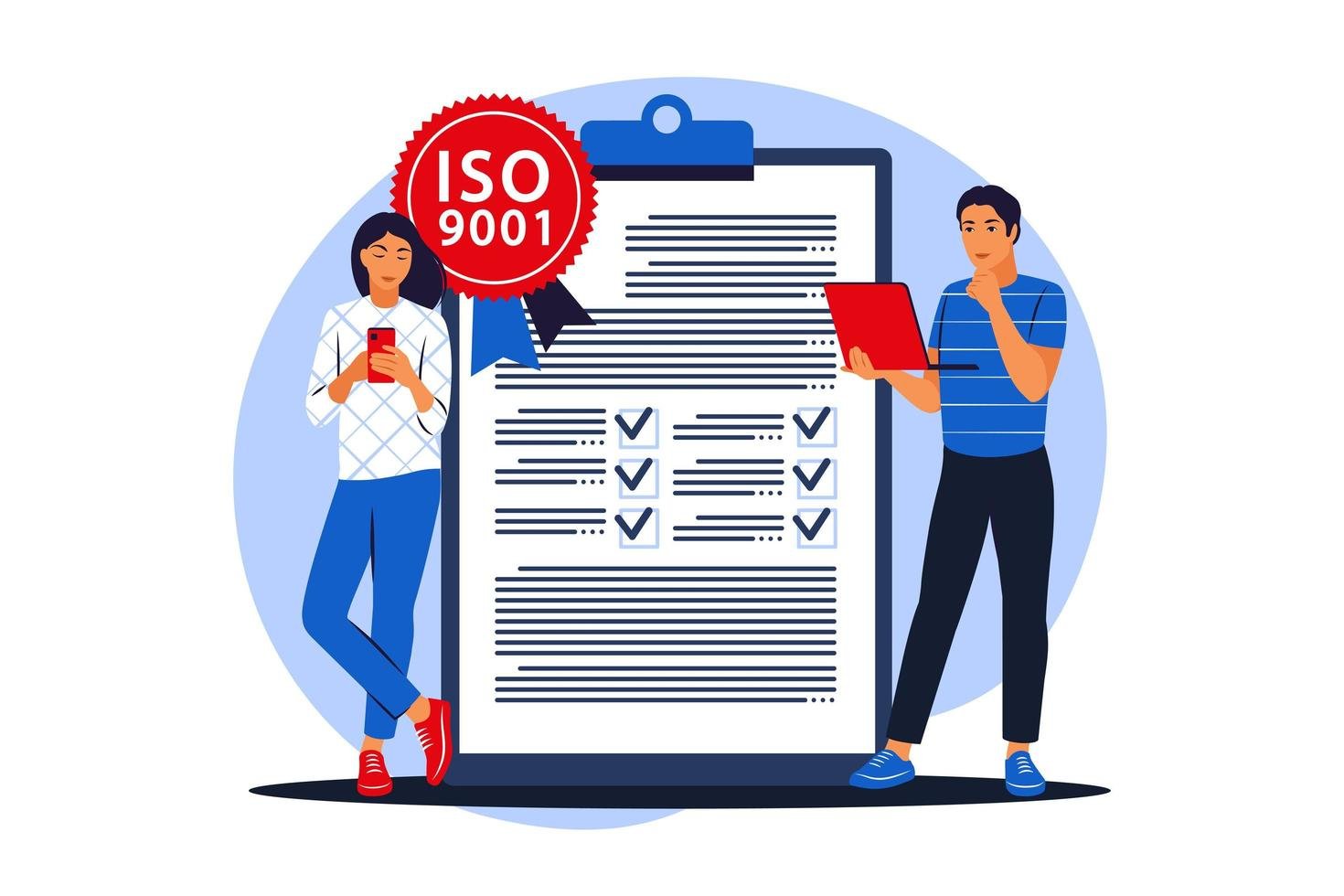Category: ISO

Achieving SOC 2 Compliance: Ensuring Trust in Data Security
Achieving SOC 2 Compliance: Ensuring Trust in Data Security In the fast-paced digital landscape, data security is paramount for all organizations. Over time, more organizations have become cent percent dependent on technology to conduct business operations. Organizations must handle sensitive information with robust security controls. As a result, ISO frameworks have become critical. SOC 2 is a well-known auditing standard. It was designed by the American Institute of Certified Public Accountants or AICPA. The global standard is essential to assess the information security controls in an organization. SOC 2 audits are ideal to review the effectiveness of the data security system. It also reviews data availability, integrity, confidentiality, and privacy norms. Service Organization Control 2 – A brief outline SOC 2 or Service Organization Control 2 is a set of well-defined guidelines for organizations that need data management and storage. Companies that store, process, access, and transmit sensitive data need the SOC 2 certificate. It provides a well-defined and comprehensive framework for evaluating the effectiveness of an organization’s security measures and practices. Data security, integrity, confidentiality, privacy, etc., are the key focused areas of the SOC 2 framework. Any organization firm can adhere to the trust principles of the certification program depending on the business practices. The framework helps maintain the data systematically with optimal convenience for the organization’s regulators, business partners, and suppliers. Choosing SOC 2 for your organization – Prime benefits Overview of the certification steps – Know it rightly The certification steps for compliance with SOC 2 are – There are two types of SOC 2 reports: Consider the certification – With the help of the framework, create detailed data security and management policies that address the prime trust services of the compliance program. The systematic and proactive approach facilitates risk management, access management, incident responsiveness, and data protection in the long run. An in-depth and comprehensive gap analysis can help identify areas that may fall short of SOC 2 standards. Get a chance to create a roadmap for achieving compliance by considering the certification. Gain in the competition with enhanced reputation Closing note – Ensure continual improvement with SOC 2 compliance SOC 2 certification promotes a consistent upgrade mindset for organizations. The framework helps continuously monitor and enhance the data security controls, policies, etc. Get a chance to conduct periodic audits with the professionals and demonstrate your commitment to data security. SOC 2 assessment is more than just a checkbox exercise because it delivers a systematic solution for safeguarding sensitive customer information without disrupting the integrity of systems and processes. Ensure optimal compliance and gain professionals with the best reputation. Also, compliance offers tangible benefits for all organizations, regardless of the size or industrial sector. Get a chance to prevent data breaches and unwanted financial losses and boost the overall reputation of the organization. Make a prudent choice by considering the ISO certification and ease your worries.

Implementing ISO Quality Management System: Achieving Excellence
Implementing ISO Quality Management System: Achieving Excellence QMS, or quality management system, refers to a well-defined management system that ensures systematic documentation of different operational stages. It includes well-defined documents of procedures and demonstrates responsibilities for achieving the best quality policies in an organization. A QMS has a significant role because it helps coordinate and develop the activities in an organization. The quality management system caters to the requisites of customer and regulatory norms. All these help improve the effectiveness and efficiency of the organization to the next level. The best-in-class quality management system determines the company’s performance in more ways than one. The perks of having a well-defined QMS are – ISO 9001 – The benchmark standard ISO 9001 is the top ISO Quality Management System. The ISO certification is globally recognized and implemented across diverse industrial sectors. It is a popular quality management system standard. ISO 9001 defines the prime requirements for an efficient QMS. All organizations can use the ISO framework to develop customized programs. The different ISO standards related to quality management systems fall under the ISO 9000 series. ISO 9001 is the international standard offering a prominent solution to organizations searching for a robust quality management system that meets their needs. The framework is apt for organizations with different requirements, simplifying the hassles to the next level. Focused areas of a QMS – The different facets of a robust quality management system help attain the organizational goals. With the best practices, it is convenient to meet the dynamic requisites with optimal resources. A robust QMS, based on the ISO guidelines can address the unique needs and meet the following – Achieving excellence with ISO 9001 The ISO Quality Management System based on ISO 90001 incorporates a systematic and process-based approach. The framework highlights the importance of comprehending the cohesive activities in an organization. It mandates an organization to clarify the operational processes, recognize the key performance indicators (KPIs), and define the quality objectives for continual improvement. Better customer satisfaction ISO 9001 framework helps meet the customer requirements. It simplifies the ways of understanding and sufficing the expectations of the clients. Efficient operations The ISO standard boosts organizations and their operations. It helps streamline the procedures, reducing inconsistencies and inefficiencies. Improvement and consistency ISO 9001 demonstrates a systematic approach for optimal quality management with the scope of continual improvements. Professional engagement Ensure proactive professional engagement of employees in the quality management process. The ISO 9001 framework fosters a proactive and professional culture of employee accountability with enhanced engagement. Trade benefit ISO guidelines enhance the reputation of an organization and help the company earn a competitive edge among customers, partners, and stakeholders. Why does it matter? Significant steps of achieving excellence A customized QMS approach – ISO for your organization ISO standard framework provides a strategic framework with a flexible and disciplined approach for optimal quality control and management. The guidelines facilitate organizations to create product targets and achieve quality goals in the long run. ISO 9001, the global standard of QMS implementation is also compatible with various ISO frameworks. (for example – ISO 14001). One can implement the best standards with clarified documentation steps and eliminate redundancies. The ISO guidelines apply to companies involving operations of designing, manufacturing, and supplying. All organizations belonging to the following industrial sectors can leverage the benefits of the ISO framework. Highlights – At a glance The implementation of an ISO Quality Management System helps ensure optimal compliance with global regulations and requisites. A company can exhibit a regulatory-compliant image and ensure customer-focused commitment to offering high-quality services. The ISO standard implementation helps streamline the operational processes and eliminate the chances of unwanted operational risks and errors. With the best QMS practices, achieve operational success and excellence. Closing note The diverse benefits of a robust QMS backed by the ISO 9001 framework extend beyond the compliance requirements. It is an ideal solution for an organization willing to amplify the trade options with optimal quality commitment. The quality maintenance practices contribute to sustainable growth, promoting competitiveness with an enhanced reputation in the global marketplace. Ensure a proactive quality management and maintenance approach to achieve excellence in the long run.

ISO 27701 GDPR Compliance: Safeguarding Personal Data with Confidence
ISO 27701 GDPR Compliance: Safeguarding Personal Data with Confidence ISO 27701 is a global standard offering a framework for personal data protection. The global framework delivers an end-to-end solution for implementing, preserving, and enhancing a Privacy Information Management System or PIMS. The ISO 27701 framework extension to the ISO 27001 standard. It is also an information security management standard. The new-age standard defines the prime requirements for private and personal data safety and management. PIMS and ISO 27701 – ISO 27701 framework guides organizations and helps them manage information security without incompetencies. The framework of ISO 27701 is based on 27001 guidelines with enhanced features. It exhibits and defines the critical requirements for PII management. The international management system standard is the best solution for ensuring data privacy. It states the ideal norms for organizations to manage personal information. With the alarming growth of personal information and data threats, implementing the ISO guidelines for PIMS is the need of the hour. The increasing rate of privacy concerns has led to the awareness of PIMS and GDPR compliance. Currently, implementing a Privacy Information Management System and abiding by the norms of ISO/IEC 27701 is paramount for all organizations. It helps a company assess, analyze, and reduce privacy risks, enhancing the overall management system. Prime benefits – Get a chance to acquire customer reliability and safeguard the PII with a robust framework. It does not restrict the utility or functionality of the data and strengthens the security boundaries. Identify the essentiality of safeguarding personal data with a well-defined management system. Improve the organizational culture to the next level. Abide by the norms and ensure compliance with GDPR and critical Data Protection laws, Regulations, and Standards, acknowledged globally. Strengthen the data confidentiality level and retain the integrity of the information. It increases the utility index and security bar of the organization’s PII. Gain a competitive edge and boost the organization by following the best practices, outlined by the ISO framework. Components of ISO 27701 – How does it safeguard the data? Enhanced data protection – Comprehensive Framework ISO 27701 is a comprehensive framework for information protection and the guidelines help organizations manage the risks efficiently. The framework defines effective risk controls for personal information protection. Implementing the ISO norms ensures effective and enhanced data privacy management in an organization. With the globally recognized norms, get a chance to implement the best technical and organizational steps for PII protection. Prevent the personal information from unauthorized and unwanted access. It eliminates the chances of data disclosure and destruction without authorized permission. Earn competitive advantage – Compliance benefit. Versatile ISO framework – Fits the needs. In the last decade, the privacy concerns have escalated to the next level. Thus, having an ISO 27701 certificate is critical. Identify and acknowledge the ideal privacy practices by implementing the best features of ISO 27701. The versatility of the ISO framework makes it apt for all organizations. It fits the needs of organizations of all sizes and business sectors. Prime takeaways – At a glance ISO 27701 has become a well-recognized standard by redefining the norms of PIMS. The internationally acknowledged standard works ideally for Information Security Management Systems (ISMS) and Privacy Information Management Systems (PIMS). The framework provides a comprehensive framework for different organizations without reducing the operational scope. Implementing the ISO framework facilitates data security and privacy to the next level. With the best practices and regular risk assessment steps, get a chance to identify the hidden vulnerabilities and threats. The ISO standard stands at a level with the GDPR requirements, ensuring an integrated solution. Final note ISO 27701 certification is the ideal choice for organizations searching for a comprehensive framework for data management concerns. The framework helps organizations boost privacy management techniques with enhanced policies and security norms. Safeguard the data confidentially without restricting access or functionality.

Navigating ISO 28000: Understanding the Latest Version for Supply Chain Security
Navigating ISO 28000: Understanding the Latest Version for Supply Chain Security The ever-increasing rate of security issues in supply chain management is alarming. Organizations are in danger and it needs a robust management solution. Companies facing security risks need to elevate their supply chain operations to the next level. The new-age norms and enhanced ISO framework can be the fitting solution. With the expensive and high-value products at stake, it is critical to identify the best solution. The ISO 28000 standards can reduce security incidents and help organizations operate confidently. Mitigate the chances of making financial and business losses alongside the unwanted legal consequences and reputational hassles. Identify the intricate matters of ISO 28000 and boost the security management for the supply chain with a comprehensive approach. Understanding ISO 28000 ISO 28000 is the latest International Standard that helps identify the risk levels throughout supply chain operations. The framework boosts an organization to carry out risk assessments. Experts can make the most of the global norms and apply necessary controls for better supply chain security. ISO 28000 is ideal for all organizations – large or small. The standards hold for any industrial sector or business world. The latest framework and guidelines are apt for organizations where managing critical supply operations is a priority. ISO 28000 offers an integrated business process for better supply chain security management. New additions to the clause: About the new version The latest edition of ISO 28000 defines a few clauses for enhanced security management. The robust framework facilitates organizations to combine the security management system with other management systems. ISO 28000 includes additional recommendations in clause 4. One can find eight principles for security management that enhance the risk management process to the next level. Also, the recommendations related to security strategies, operational procedures, and security plans promote consistency within the organization. Prime benefits – The ISO 28000 latest version delivers robust benefits to companies of various sizes. Take a look at the table to explore the prime benefits of the latest ISO norms – Trade and commerce Promote the trade and commerce prospects while streamlining the transport of goods across international and national borders Enhanced risk management Monitor, assess, and manage security risks across all stages of trade operations and supply chain Market profit Earn a competitive advantage amidst the ever-rising competition Amplify security ISO helps companies secure their processes and supply chains to the next level Assurance and commitment Help the stakeholders realize the organization’s commitment to providing safety and security of goods and services Manage and allocate Manage confidently and efficiently by aiding the management team to operate with finite resources Trade globally Exhibit and practice the best security management measures to meet international norms Reduce expenditure Ensure optimal cost saving by reducing the chances of unwanted security incidents Acquire opportunities Acquire the best commercial opportunities with enhanced security practices for supply operations Better risk management with the latest version Establishing a competent risk management system is a challenging process for an organization. The increased rate of threats like – natural disasters, cybersecurity risks, and geopolitical hassles, needs a robust solution. The enhanced risk management place can help stop the mismanagement in the flow of goods and information. Supply chain disruptions can ruin a business, its reputation, and more. Creating an efficient security management system with the help of ISO 28000 defines the security-related risks. It reduces the risks of exploiting or missing out on dynamic opportunities. The latest ISO framework stresses a proactive risk assessment approach covering – The modern ISO standards focus on the design, installation, management, and replacement of security equipment in an organization. It comprehends the essential information, data, etc. to create a robust management system. Obtain the essential information related to security risks and vulnerabilities to acknowledge the interdependencies between suppliers. It helps in decision-making as well. Make better decisions based on the vulnerability, and risk analysis data specific to the organization. How can it facilitate your organization? Small businesses and ISO 28000 Regardless of the size of a business or its supply chain, ISO 28000 can be the apt solution. The ISO framework helps small organizations during the different stages of manufacturing, storage, and transportation. It is ideal for various industrial sectors and boosts the security practices of companies across the globe. The latest ISO framework comprehends the risks to ensure optimal supply continuity. ISO 28000 highlights the need to implement a security management system. Meet the dynamic business aspects that can impact the supply chain security in a major or minor way. The ISO 28000 latest version considers the diverse aspects involved in transporting the goods besides the supply chain management issues. Small businesses can leverage the benefits of creating and accessing a valuable ISO framework and minimize the risks of security incidents, ensuring a streamlined and safe delivery of goods and supplies. The framework of ISO 28000 can facilitate organizations to safeguard individuals, products, and property with equal competence for small organizations and multinational companies. Closing note ISO 28000 is ideal and applicable to organizations of all types and sizes, including – commercial enterprises, government, and non-profit organizations. With the latest ISO norms of supply chain security management, get a chance to establish, implement, and facilitate the operations to the next level.

Mastering ISO 22301 Lead Auditor Course: Your Guide to Professional Excellence
Mastering ISO 22301 Lead Auditor Course: Your Guide to Professional Excellence ISO 22301 is the well-known international standard for business continuity management systems or BCMS. ISO 22301 offers a holistic framework for organizations to resolve the requirements of business continuity hassles. The well-defined framework prepares the organization and helps manage unexpected incidents. It also helps prepare and recover from unforeseen business incidents. Implementing a BCMS is the ideal solution for the organization. They can detect and mitigate dynamic business threats, ensuring uninterrupted financial operations. The auditors with an in-depth overview of the ISO 22301 framework can ensure the best professional advantages in the dynamic business landscape. How? Because they are well aware of the requirements ideal for organizations of different types, sizes, and complexities. ISO 22301 is an excellent choice for organizations, and complying with the dynamic business continuity policies is a must. BCM – Business continuity management: The growing need The dynamic challenges in the commercial landscape have promoted the significance of a resilient BCMS in an organization. Meeting the ISO 22301 standards has become a benchmark for organizations regardless of the industrial sectors. The ISO framework facilitates the ability of an organization to handle disruptions, reduce risks, and safeguard critical operations. The ISO 22301 global standard strengthens organizations to regularize the response plan for unforeseen incidents, enhancing the overall operational security. The ISO 22301 certified professionals can demonstrate their profound knowledge of the BCMS framework requirements and ease the worries related to effective implementation. The professionals are well-prepared to lead teams and can ensure optimal professional ease in the long run. The professional role of ISO 22301 lead auditor – An expert ISO 22301 Lead Auditor has a pivotal role in managing organizations during the different stages of implementation and audit. The trained professionals have the necessary skills and knowledge base to comprehend the effectiveness of the already-existing business continuity measures. The professional role of the auditors is significant while evaluating risk management processes, performing audits, etc. Benefits of auditor training – Decode the popularity Prime Aspects of ISO 22301 Lead Auditor Course The ISO 22301 Lead Auditor Course covers the diverse aspects of the auditor curriculum. The training modules cover the prime components, including – risk assessment, business impact analysis, etc. The skill set promotes the development of a robust BCM plan for an organization. The interested participants can learn and comprehend practical insights with the help of real-world case studies and training exercises. All these have crucial roles in enhancing the ability to review and implement BCM principles in dynamic organizational contexts. The training makes the Lead Auditors competent enough to resolve the professional requirements. They are well-equipped to investigate and analyze the complexities of BCM implementation for an organization. Professionals pursuing the ISO 22301 Lead Auditor Training can obtain a certification. The certificate is significant for the career and helps a professional gain a competitive edge in the long run. Certification exhibits and validates their expertise in business continuity. They can operate as audit leaders and guide organizations during uncertain times. Also, organizations, with certified ISO 22301 Lead Auditors as staff members can gain credibility. It assures the stakeholders and reflects a commitment to the ideal practices of business continuity management. Acknowledge the professional perks. Who can consider the professional training? Training objectives – At a glance The objective of ISO 22301:2019 lead auditor training comprises the following – Meet the compliance norms of the ISO 22301 framework. Review and acknowledge the areas that need improvement and analysis. Gain credibility as a skilled auditor Enhance the diverse and lucrative career opportunities in auditing. Exhibit a professional commitment to organizational resilience and business continuity. Obtain an overview of the necessary skills for planning and executing ISO 22301 audits. Gain professionally with the best professional training course Implementing a BCMS framework helps an organization comprehensively. It provides a solution for continual improvement, boosting the performance to the next level. One can meet the legal requirements and the business continuity objectives. The audit program focuses on the assurance processes that help establish an effective BCMS. Professionals can gain in the long run by attending the course. Boost the career prospects by learning the critical skills necessary for audit sessions. It helps a professional to assess and analyze the implementation steps of ISO 22301:2019. With the best training module, get a chance to prepare and conduct audit activities with optimal professionalism. Closing thoughts Identify the essential audit norms professionally and meet the requirements of management system standards. Learn the associated methodologies, techniques, and tools with the best ISO 22301 Lead Auditor Course and ensure a lucrative choice for your career goal.

BRCGS Audits: A Step-by-Step Guide for a Seamless Certification Process
The industrial sector for food processing and production is extensive. The various standards related to food safety and quality determine the brand quality. BRCGS or British Retail Consortium Global Standards is the world-famous authorizing agency defining the essential norms for food safety and quality. One can ensure the best quality control and safety measures with BRCGS audits. The integral components of the audit are diverse and the professionals play a pivotal role in the process. One must connect to the top professionals in the industry to meet the highest standards. In the food industry, safety is a pivotal aspect. The essentiality of safety control is beyond a box to tick on a compliance checklist. Food safety is integral for consumers and brands involved in its production. Ensuring product safety and high-grade quality ensures optimal compliance with food safety standards by manufacturers, retailers, and suppliers. BRC standards and audits are part of the ideal industrial practices and frameworks. These help businesses achieve optimal safety and quality status. Achieving BRCGS certification denotes a commitment to excellence and boosts reputation. It is a noteworthy aspect of food safety, quality, and compliance with industry norms is essential. About the BRC standards – A global initiative BRC was established in 1992. The British Retail Consortium or BRC promotes the ideal practices for the food industry amidst evolving landscapes. It defines the regulatory frameworks of UK and EU food safety laws. The BRC Global Standards or BRCGS is a prime global benchmark, promoting food safety and quality programs worldwide. BRC Global Standards is a prominent safety and quality certification program for food products. The standards were developed by the British Retail Consortium, the trade association of the UK retail industry. BRCGS covers an extensive range of food safety and quality concerns. The safety issues include – food safety management systems, product safety, packaging, storage, and distribution techniques. It also delivers a framework for product safety, quality, and operational measures for the food ingredient manufacturing, processing, and packing sector. The BRC Global Standards food safety certification program helps certify suppliers across different countries. Audit and understanding – Both are necessary The BRCGS audit requires an in-depth understanding of the standards defined by the consortium. BRCGS defines various standards tailored to meet the requirements of specific sectors like – food safety, packaging, storage, and distribution. Businesses can review the relevant standards based on the industrial type and product offerings to decide the best. Preparation is necessary to ensure a successful BRCGS audit. Hiring a dedicated team to oversee the certification process is the best approach. They can conduct a gap analysis drill to identify areas the shortcomings. The proactive approach helps implement the corrective actions before the audit commences. 9 Integral aspects – Critical to note BRCGS audit is relevant for organizations meeting the following criteria – The updated standards contain nine core sections, including – Significance of audit – The BRC can improve the safety and quality of food products with the best-in-class and high standards. BRC certification is a necessity for many retailers and suppliers. The certification has helped raise the standard for food safety across the industry. One can ensure the best solution by adhering to the defined benchmarks. The BRC-certified companies can manage and mitigate the risk of food safety incidents, ensuring optimal consumer confidence in their products. Components of BRCGS audit A BRC audit evaluates the compliance and safety status and helps you match them with the BRC Global Standards. It is a comprehensive assessment of the food safety management system, food management processes, and operational procedures for the organization. The audit is conducted by an independent BRC-accredited certification body, ensuring optimal safety and reputational advantage. Make a prudent call. Ensure the best audit services with professional auditors. They have the necessary resources to simplify the process and deliver accurate reports on the food safety index. IRQS is first certification body to receive NABCB Accreditation for BRCGS standard in India. Consider the professional services to ensure optimal accuracy.

What Does An Internal Auditor Do? A Comprehensive Guide For You
Internal auditors are critical for all organizations. The professionals help in protecting the organizations through their expert services. They analyze compliance and review the risks to bring the best strategy for the organization. Internal auditors review the company documents and data to recognize critical aspects like – Internal auditors operate across different industries. It can be healthcare, tech, education, or government. The expert auditors hold full-time professional positions and work as contractors for short-term audit projects. Professionals who can analyze perfectly and work with numbers are the perfect contenders for becoming internal auditors. They analyze and review to report the shortcomings and offer a lucid overview to the internal stakeholders. The auditors work independently. Internal auditors necessitate analytical and critical thinking skills with sharp attention to detail. The professionals are always in high demand. Read on and obtain critical notes about their profession and responsibilities. The duties and responsibilities Internal auditors check and analyze the critical records and financial documents in an organization. They examine and find out the underlying issues including – compliance concerns, risks, fraudulences, inconsistencies, and data inaccuracies. After checking the records within the audit’s scope, the auditors investigate for figuring out the shortcomings. Internal auditors implement their resources and knowledge of laws, industry regulations, and organizational policies to recognize the chances of noncompliance, fund misappropriation, and potential risks to the business. Besides these, the auditor takes care of the following responsibilities. Highlighting the prime duties of an internal auditor – The ultimate guide Prime qualities and service traits of an internal auditor Ways to Become a professional internal auditor An internal auditor must have a bachelor’s degree in disciplines like finance, accounting, etc. Ideally, having master’s degrees in business administration, accounting, auditing, business law, or taxation can be helpful for the career. But there are certification programs with specialization training for internal auditors that help them learn essential skills. Get the best auditors with IRQS. Now you know the offerings brought by the internal auditors. Get in touch with IRQS, the one-stop destination for connecting to the top auditors. Efficient audit solutions with accurate reports make IRQs suitable for internal audits. Find a proficient team of auditors with several years of experience and ample resources.

What Is ISO 27701? A Guide To Understanding Privacy Information Management System
Privacy of information is a priority for all organizations and requires a well-defined model for optimal management. Half-hearted efforts do not yield a positive outcome for ensuring information privacy. One needs to recognize the role of international standards in ensuring information safeguarding. This is where the ISO 27701 certification comes into the picture.

Why ISO 21001 Is Important For Education Organizations?
ISO 21001 brings a compact management process and tool for organizations that operate in the educational sector. The organizations providing education-based products and services require certification. It indicates their capability of serving the requirements of the service seekers, learners in this case. The ISO 21001 is a stand-alone and unique management tool. It also aligns with distinct certification models like ISO 9001, ISO 14001, etc.

SOC 2 Compliance and Audit & It’s Importance for Establishing Trust with Clients
SOC stands for service organization control. The certification is currently an indispensable part of organizations that function in the IT field. Even businesses providing third-party IT services need it. SOC 2 compliance and reports help develop customer or user trust in the service brand. It also helps in the growth of the business organization. The SOC is issued by AICPA, the abbreviation for American Institute of Certified Public Accountants. It primarily focuses on data risk and protection to bring integrity.

How can a startup benefit from ISO 9001 certification?
Awareness regarding ISO certifications is crucial in every sector. For business or service-based organizations, the ISO certifications hold major significance. The ISO 9001 certification is particularly vital as it holds the ability to upscale a small venture into a bigger enterprise. One of the most popular standards among the many ISO certifications in various industrial aspects is the ISO 9001 quality management standard. For more than thirty years, millions of organizations have understood the significance of ISO 9001 certification.

Why does your company need ISO 45001 for workplace safety?
Are you aware of the certification and advantageous aspects of ISO 45001? For those who do not know, ISO 45001 is an international standard certification for occupational health and safety management systems. It helps in providing a practical and feasible solution for enhancing the health and safety concerns of employees and others in an organization. It is a noteworthy step for preventing any hazard caused by work injury or illness. It influences the working pattern in a workplace and offers a strategic framework to improve work safety.

What Is IATF 16949: 2016 Automotive Quality Management Systems?
Success in the cutthroat automotive industry does not come easy. Rather, a path is strewn with thorns along the way. It is how you maintain your standards, sustain the level of technical innovation, and ensure premium quality, that will ultimately decide whether you can stay counted in the automotive industry.
Only Organizations that manage their standard and maintain a management system certified according to IATF 16949 will be able to win customers’ trust.

How Many Categories of ISO Certification in India?
In today’s competitive marketplace, businesses want to be known for adhering to quality assurance and manufacturing standards. Thus, to promote product compatibility, enhance credibility and trust among customers, stakeholders, and business partners, international experts agreed upon a collection of different ISO (International Organization for Standardization) standards that lay down the best practices for organizations to follow.

What is ISO 21001 Educational Organisation Management?
The famous scientist, Albert Einstein had once said, “Education is what remains after one has forgotten what one has learned in school.”
How true it is, for what one learns whether in school or university, remains with one forever.
Search
Useful Links
Recent Posts

Understanding ISO 50000 for Energy Management: Unlocking Efficiency

Demystifying ISO Information Security Standards: A Comprehensive Overview



